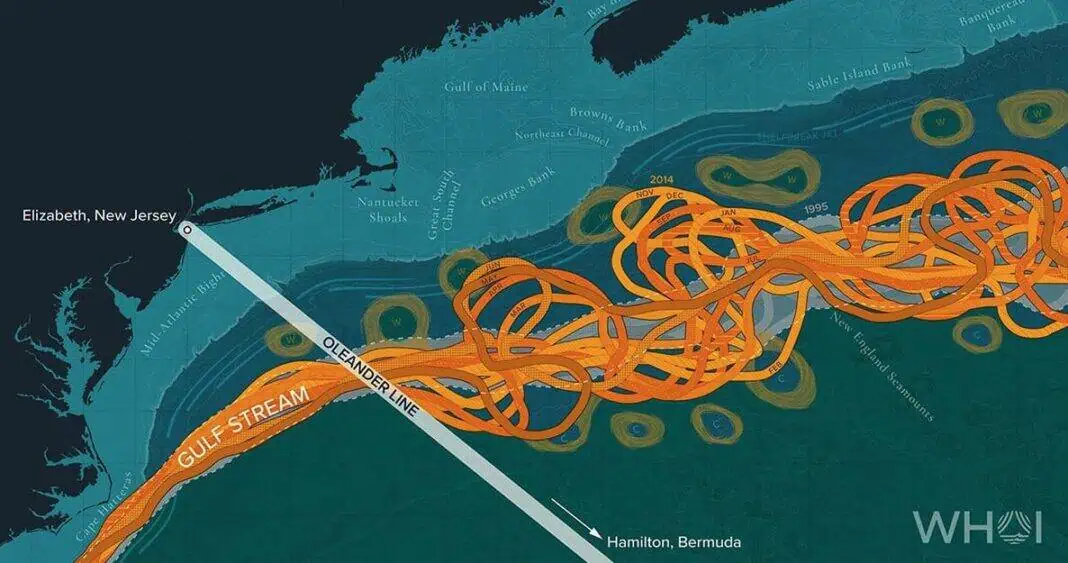A new partnership between various research institutes and marine cargo vessels has launched with the aim of monitoring the wider oceans.
The new partnership includes the Woods Hole Oceanographic Institution (WHOI) and the Arizona State University/Bermuda Institute of Ocean Sciences (ASU BIOS) along with the Bermuda Container Line/Neptune Group Cargo marine vessel (MV) Oleander.
The new relationship allows the ships to collect regular data, including water column, sea surface and atmospheric measurements.
Commenting on the partnership and data, Magdalena Andres, a senior scientist in WHOI’s Department of Physical Oceanography and lead author of the study, stated:
“Sustained observations of temperature, salinity, and carbon dioxide concentrations along the Oleander Line have provided critical information about our changing oceans, including the warming and shrinking of the Slope Sea and a northward shift of the Gulf Stream.”
While Tim Noyes, the study co-author and marine ecologist and research fellow at ASU BIOS, added:
“The long-standing cooperation between scientists and the Bermuda Container Line/Neptune Group serves as a model. In situ measurements provided by ships can complement satellites and be an important part of global observing systems. Along with a suite of other observatory tools, this region of the world’s ocean is revealing some of the changes underway and helping us to predict and respond to future changes.”
According to Woods Hole Oceanographic Institution Marine Operations Senior Manager Kerry Strom:
“The industry has signaled that it is willing to help as scientists seek to expand their ability to collect sustained observations of the atmosphere and upper ocean waters to advance science and address pressing global challenges. With its integrated system of scientific sensors, MV Oleander serves as an interdisciplinary observatory in the Northwest Atlantic that can be replicated elsewhere to aid scientists who have only limited access to the seas.
“The successes of Oleander’s operation over the last 50 years demonstrate that partnering with the merchant marine can increase this access.”

